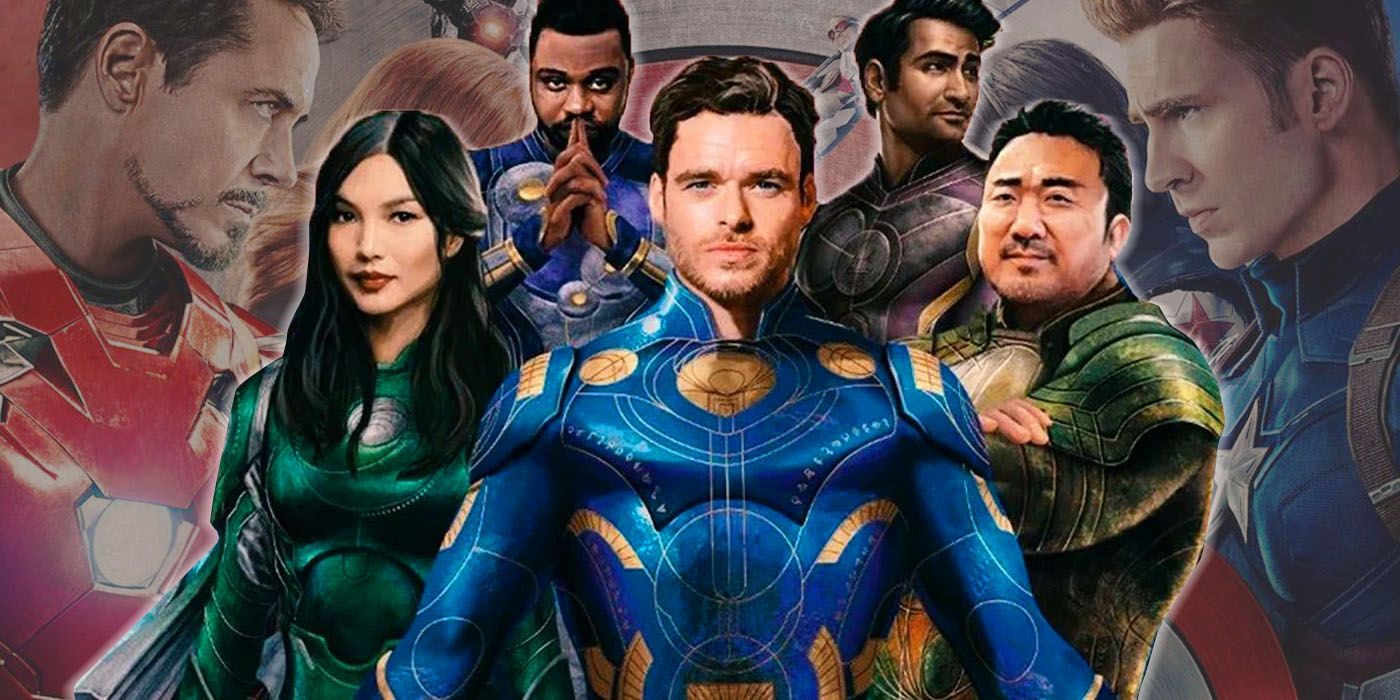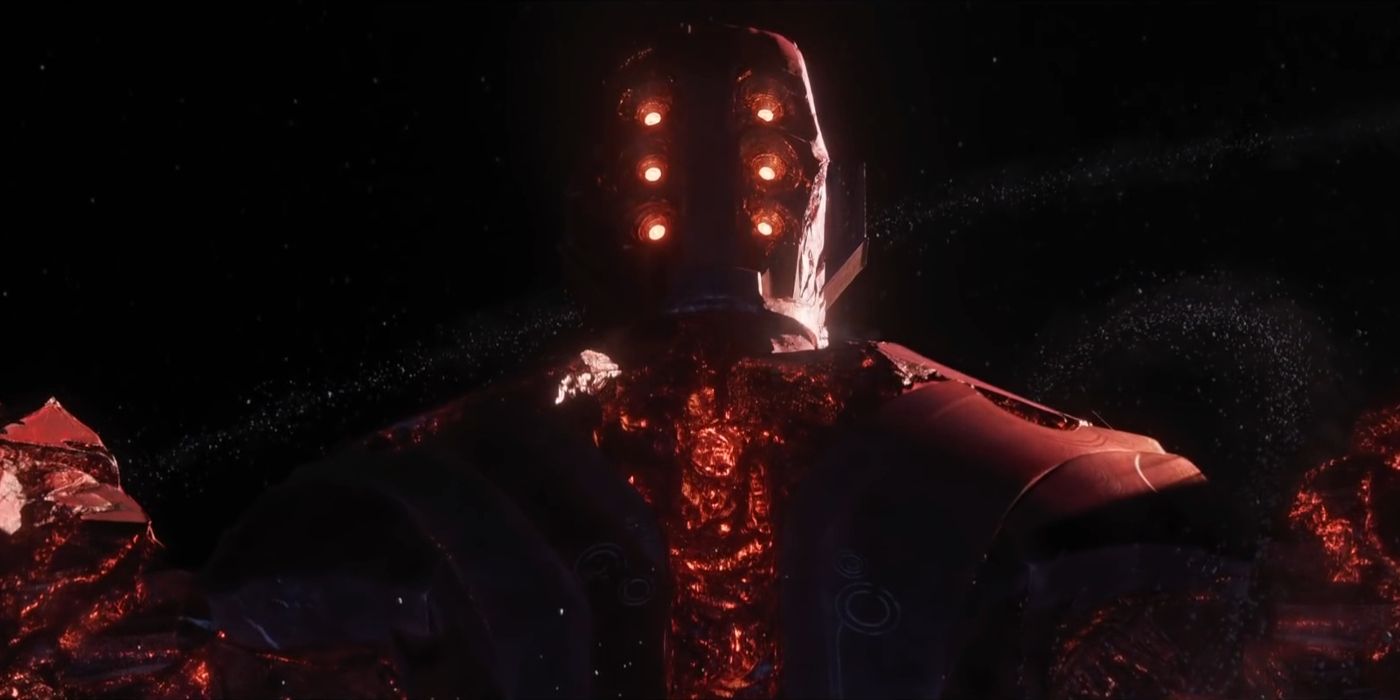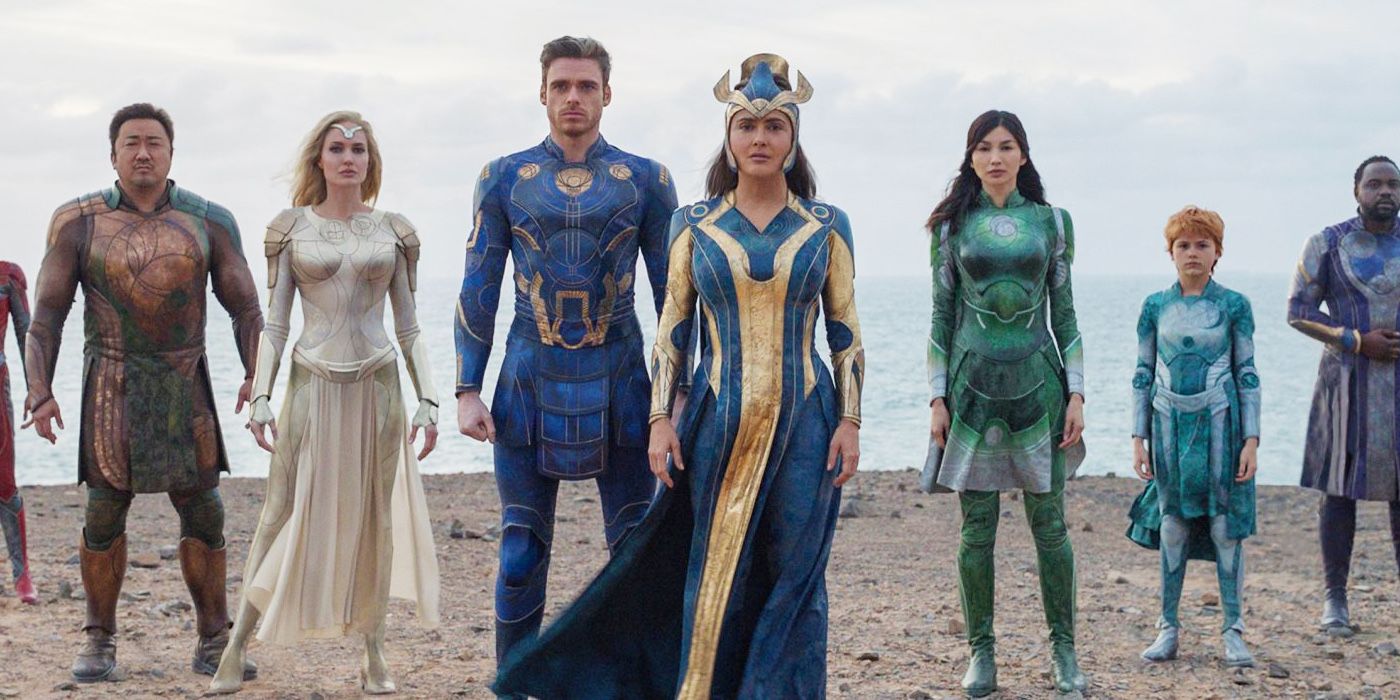
WARNING: The following contains spoilers for Eternals, now in theaters.
Captain America: Civil War saw the two biggest heroes of the Marvel Cinematic Universe come to blows over how to best protect the world. Tony Stark argued that the Avengers needed to be held accountable to world governments to protect the team from its own mistakes, while Steve Rogers countered that Earth's Mightiest Heroes need to operate independently and not be bogged down by bureaucracy. The conflict escalated until the Avengers broke in half, with heroes like Falcon, Scarlet Witch and even Captain America himself becoming fugitives from the law. This heightened infighting among superheroes becomes a central point in Eternals but does so in a way that's far more weighty and grandiose than Civil War, and is ultimately more compelling because of it.
In Eternals, the main characters are a team of ten immortal aliens who were dispatched to Earth by the mighty Celestials at the dawn of humanity. The team's purpose was to protect people from a different pack of aliens called the Deviants while staying out of human affairs entirely. By the time the film opens, the Eternals have succeeded in their mission; the Deviants have gone extinct and the team has simply gone their separate ways while waiting for further instructions from the Celestials. Once those instructions arrive, however, the truth becomes far more complicated.

Through Sersi (Gemma Chan), audiences learn that the Eternals are created by the Celestials with artificial memories and that their true purpose is to see the Emergence through. Celestials reproduce by planting seeds in developing worlds and Earth is one of them. Thanks to the Avengers restoring half the universe in Endgame, the planet's population is big enough that the Celestial Tiamut can emerge from beneath the planet's surface, feeding on the psychic energy of human beings before the Earth is destroyed.
Most of the Eternals react with horror at the revelation, but it's their de facto leader Ikaris (Richard Madden) who takes it in stride. He points out that one of the powers the Celestials have is to create stars, which could attract habitable worlds which could evolve intelligent life, just like Earth. While his very existence will cost billions of lives (including the Eternals themselves), Tiamut has the potential to create trillions more in their wake.
However, the other Eternals are unwilling to let the situation be a simple numbers game. Over the eons, many of the team have fallen in love with humanity, have built lives on Earth and aren't willing to let all of that go just because of a millennia-old plan that they, by definition, have no agency in. Thus the final act of Eternals becomes a fight between the two factions, as Ikaris and Sprite (Lia McHugh) try to see the Emergence through to its end, while Sersi, Phastos (Bryan Tyree Henry), Druig (Barry Keoghan), Makkari (Lauren Ridloff) and Thena (Angelina Jolie) try to stop it.

The scale and gravity of Eternals' core ideas make it a more compelling conflict than Civil War. For as intense as Cap and Iron Man's feud was, it was ultimately less about the external threat of the Sokovia Accords and more the internal, emotional peril of Steve and Tony's friendship. By contrast, Eternals becomes about the lives of entire planets. The Eternals have seen Earth and the people on it grow and change and develop over thousands upon thousands of years. The concept of seven billion lives isn't just an abstract for them, it's the cultures they've seen rise and fall, individuals they've fallen in love with. One of the most poignant moments in the film sees Ajak (Salma Hayek) expressing awe at how a handful of survivors managed to undo the universe-wide damage Thanos inflicted in Infinity War.
And yet, the other side has a point, too. What right do the Eternals have to block the countless lives Tiamut could create? To interfere in the affairs of what are essentially Gods? It's a tough question to answer, something that the film deftly acknowledges. Before the final fight, Kingo (Kumail Nanjiani) recuses himself from battle. Despite everything that's happened, he agrees with Ikaris, but he can't bring himself to fight his family and instead returns home to wait out the end of the world (or not). Given everything that's happened, it's hard not to sympathize with him.
Eternals ultimately comes down on the side that the Earth is worth protecting, with the team stopping Tiamut's Emergence, saving the world and essentially declaring war on the Celestials. Audiences may never know if Earth's First Heroes made the right call, because there may not have ever been a "right" call to make.
Eternals is now playing in theaters.
0 Comments